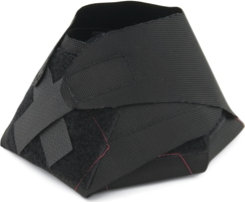Friends of mine just lost a horse,…an 9 year old, beautiful sorrel mare who has ran barrels in several big name rodeos. The horse had a blockage and could not pass manure for three days. Our Vet responded several times, tubing the horse with mineral oil and water,…at both ends, to no avail.
There was nothing our friends could have done. They are devastated as was I when I had to put down my 7 year old Paint Horse, Chance, due to a twisted gut one year, nine months, and 16 days ago. You have a special bond with a horse you have raised and trained as a weanling. Chance was a character, often pulling off my hat and running away with it. I could place him 50 feet away and butt towards the trailer, throw his reins over the saddle horn and say “Git in the Trailer” and he would turn and run into the trailer, sometime sliding to a stop and sitting down like a dang elephant – what a character. Hardest thing I’ve had to do was put him down. This is Chance below.
The deal here is not to beat yourself up on what you could have done,….these things happen. You just have to take as best care as you can to ensure your horse is getting good, clean feed, and, free choice clean water.
My wife, who has ridden dressage in Germany under a Master and been a Wrangler at a Dude Ranch in California, has an unnatural sense on horses, she can pick up lameness when I don’t see anything,…she can tell a horse isn’t right, when it looks okay to me. She has correctly diagnosed problems that some Vet’s miss. However, most of us don’t have that sixth sense. We have to reply on experience much more than gut instinct.
The more you observe your horses, the more you know. You can develop the observation skill to tell when a horse just ain’t right, and bears watching. A horse standing listless is cause for concern. Standing spread out like when they urinate; without peeing is a good sign something is wrong, usually in the gut. Standing with their ears back, like they are trying to listen to or get a handle on a problem behind them is another sign.
Biting at their sides evident by mouth shaped wet spots and ruffled hair on their barrel can indicate gut distress. Walking in tight circles then trying to lay down and lay down hard is a big clue and you have to do what you can to keep the horse from throwing itself down as this is a good way for the horse to twist a gut. When a gut twists, it is all but impossible to save a horse without immediate surgery and even then there’s a relatively small chance the horse will survive.
You need to have a reference book on hand. You can click here, or click on the link to the left, then type “Equine Nutrition” in the search box to bring up a list of the best Equine Nutrition and Health Care books available.
Good luck with your horses,…just give them a fair life.



















Very true. I just had 2 mares put down last week. Bought Luisa as a 2YO and she was rising 36. Bred Astrid from Luisa and she was rising 30. They had good long happy lives and went together with age-related deterioration but before they got decrepit. I'm big on responsibility, not rights, as I think you must be.
ReplyDelete